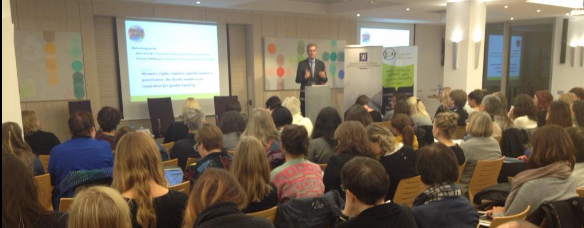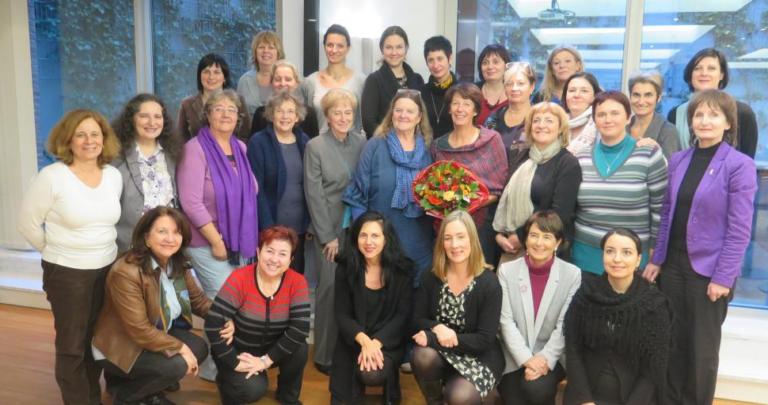[Brussels, 10 January 2013] The European Economic and Social committee (EESC) has adopted its opinion on the EU Strategy towards the Eradication of Trafficking in Human Beings 2012–2016. The European Women’s Lobby (EWL) welcomes this opinion, which calls for strong and coordinated action to end trafficking for sexual exploitation.
In its opinion, the EESC stresses on the need to financially support victim support associations, as “this strategy cannot be applied without active support from civil society”.
Regarding trafficking for sexual exploitation, the EESC welcomes the focus on the gender dimension: “As things stand, 80% of the victims of trafficking are women, most forced into prostitution against their will, and sexual exploitation represents 76% of all trafficking in human beings. The persistence of this form of trafficking for sexual exploitation highlights the inequality between women and men . The fact that women, often very young women, are brought into the wealthiest cities in the European Union for prostitution, raises the question of what image their clients have both of these women and women in general, and undermines the steps being taken in other areas to establish equality between women and men.”
The EESC recognises sexual exploitation as the main root cause for trafficking: “Sexual exploitation makes up the bulk of trafficking in human beings (80%) and it is therefore important to name it. It is important to be clear about what needs to be combated. The traffickers may appear to belong to a nebulous, far away and unreachable group, but both clients and victims are people any of us might come across on the streets of Europe’s cities.”
In this perspective, the EESC proposes the introduction of a label for cities hostile to sexual exploitation of women and children.
The EESC makes a point about the role of the demand, and the need to address it, highlighting the need to address inequality between women and men : “First and foremost, stepping up prevention entails tackling demand. As long as there are clients, there will be traffickers . Reducing demand will involve educating people from all backgrounds about gender equality from a very young age, as well as increasing workplace gender balance. When workplaces are mixed, and men and women do the same jobs and are promoted to the same levels of responsibility, it becomes more difficult to maintain unreal fantasy images of women and to perceive them as sexual objects which can be bought. Sex education encompassing both the emotional aspects and human dignity is vital . If parents are silent on sexual matters, young people go looking for information on the internet and risk being exposed to negative images which may affect their future understanding of relationships between women and men.”
To read the opinion and get more information, visit the EESC webpage.



